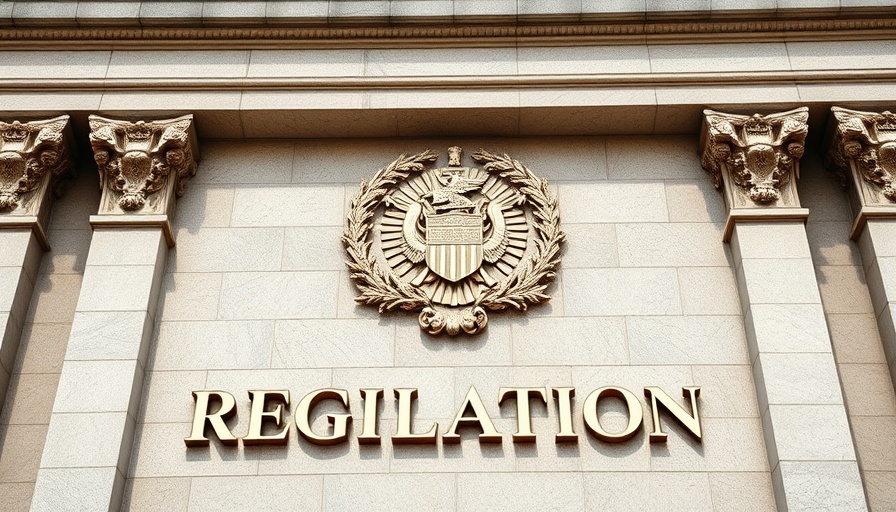
Jonathan Gould: A New Era for Digital Assets Regulation
In a significant shift for the financial services landscape, Jonathan Gould has been confirmed as the new Comptroller of the Currency (OCC), marking a pivotal moment in U.S. banking regulation. With over five years since the OCC had a permanent head, Gould's leadership is poised to invigorate the discussions surrounding digital asset management and the entry of fintech firms into the traditional banking sector.
Embracing Digital Transformation in Banking
Gould's extensive background—most notably as chief legal officer at the blockchain firm Bifury and experience within the OCC during the Trump administration—signals an intent to streamline regulations that have historically constrained banks from fully engaging with digital assets. His appointment comes at a time when issues surrounding digital currency and crypto custody services are coming to the forefront of banking operations.
The Call for Innovative Risk Management
During his confirmation hearings, Gould stressed that past regulatory stances have sometimes worked against banks' abilities to manage risk effectively. He argued that an overly cautious approach has not only hindered banks' operational capabilities but may also underestimate their adaptability to new technologies. This perspective fosters an environment where digital innovation can thrive, ultimately benefiting both banks and their customers.
Fintech’s New Playing Field
The OCC’s recent decisions under Gould's predecessor have already laid groundwork for fintech firms to transition into bank-like operations. The conditional approval for SmartBiz Loans to become a bank holding company exemplifies the OCC's willingness to embrace the fintech revolution. By integrating technology with banking, these firms can better serve their clients, especially small businesses that may need more agile funding solutions.
Potential Challenges Ahead
While the outlook appears optimistic, industry trade groups remain cautious about nonbank entities, particularly crypto firms, gaining access to banking charters without robust oversight. Skepticism toward their stability and long-term viability persists, highlighting the tension between innovation and regulation.
Impact of Digital Asset Custody Regulations
The OCC’s Interpretive Letter 1184 represents a leap toward adopting modern banking practices by allowing banks to provide custody services for crypto assets. This development underscores a growing recognition of digital assets within traditional banking functions, making it imperative for business owners to stay abreast of these changes to leverage them effectively in their operational strategies.
What This Means for Your Business
For business owners generating $2M–$10M+ in annual revenue, the evolution of banking under Gould’s leadership offers new opportunities for financing and operational growth. Those exploring fintech solutions should consider the upcoming regulatory shifts and seek out partnerships that align with these trends, fostering innovation and financial health for their ventures.
As industry standards continue to evolve, staying informed about regulatory changes in digital assets and fintech can be the key to future success. Understanding these dynamics can help businesses navigate funding and operational infrastructures more effectively. Now is the time to act: consider integrating technology solutions that align with these emerging trends in banking!
 Add Row
Add Row  Add
Add 



Write A Comment